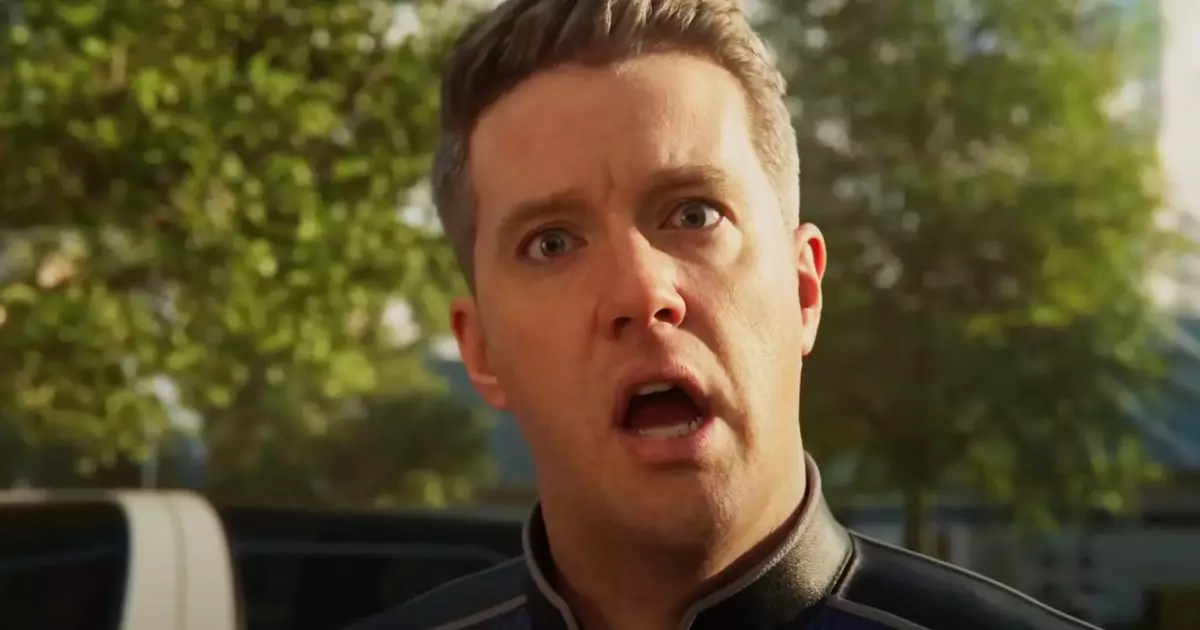At first glance, Helldivers 2 appears to immerse players in a typical sci-fi shooter experience—blasting enemies across a futuristic universe. Yet beneath the surface lies a paradox that challenges our understanding of entertainment: the game’s latest mission orders players to commit mass destruction under the guise of defending democracy. The game’s developers, Arrowhead Studios, seem to lean into this contradiction, pushing players to wage war against myriad alien enemies in a grand effort to stabilize a fragile societal order. But what does this say about our cultural consumption of violence? Are we simply entertained by chaos, or are we unwittingly endorsing the very destruction we fear?
Helldivers 2 magnifies the absurdity of modern wars by framing mass slaughter not as a tragic consequence, but as patriotic duty. The game’s narrative propagates the idea that dismantling hordes of enemies—Shriekers, Impalers, Leviathans—is essential to restoring societal faith. The irony lies in how this violence is validated through official channels as a necessity for democracy’s survival, echoing real-world conflicts where the line between protection and destruction blurs dangerously. Is this a reflection of our own political landscape, where sometimes the rhetoric of national security justifies questionable acts? The game’s messaging forces us to confront how easily violence is normalized when couched in words like “protection,” “defense,” and “restoration.”
Satire or Symptom? The Irony of Militarized Mass Action
Arrowhead’s satire has been evident in recent updates, yet it’s hard to ignore how it subtly mirrors, exaggerates, and sometimes even normalizes the grotesque realities of war. The order to eradicate tens of millions of enemies sounds absurd—almost comedic—yet it underscores a powerful critique of the military-industrial complex. The choice to depict citizens’ fears of invasion, disenfranchisement, and dismemberment as justification for relentless slaughter is a stark reminder of how narratives are manufactured to justify violence. The “Maximum Security Cities”—Fort Union, Fort Sanctuary, and Emeria—carry names that evoke protection but suggest containment and control, not freedom.
This narrative becomes even more unsettling considering the recent setbacks faced by the players in defending the Democracy Space Station from automatons. The failures serve as a sobering reminder that victory isn’t guaranteed, and the violence isn’t just game mechanics but a reflection of real-world struggles for security and stability. The developers seem aware of this paradox, using satire to draw attention to how political authorities often resort to martial imagery and mass violence to quell fears—sometimes fabricating enemies, sometimes exaggerating threats to justify new measures.
Celebrating Violence with a Glimmer of Community and Covert Humor
Amidst this chaos, Arrowhead’s gesture of awarding a free “Ingress-81” cape encapsulates the complex interplay between community engagement and subversive humor. The cape, a vibrant purple adorned with braille patterns spelling “DCON DCON,” is more than a cosmetic item; it’s a nod to players who participated in the ARG—a clandestine operation during which players worked tirelessly to “bring Station-81 back online.” This act of rewarding participation hints at a deeper understanding of gaming culture, where collective effort and shared narratives foster a sense of camaraderie despite—or because of—the violence involved.
The cape’s design, referencing “Defcon,” adds another layer of irony, considering the term’s association with nuclear alert levels and existential threats. It’s a deliberate nod, a wink to players aware of the game’s satirical commentary. By embedding humor and coded messages within the rewards, the developers subtly challenge players to question the very fabric of their in-game actions—are they mere killers fulfilling a chore, or participants in a larger commentary on the spectacle of war?
The Power of Controversy and Its Impact on Player Perception
The ongoing narrative push in Helldivers 2 is undeniably provocative. It blurs the lines between entertainment, satire, and social critique. Such a bold approach risks alienating players uncomfortable with the violence or the implicitly cynical tone. Yet, it also ignites vital conversations about how modern media, including video games, shape our understanding of conflict.
For many, gaming is a form of escapism—an outlet for catharsis or adventure. However, Helldivers 2’s approach uses violence as a mirror to societal issues, forcing players to reflect on the justifications they endorse and the real-world consequences of such narratives. The game’s relentless push for mass slaughter—targeting millions of enemies—are not mere numbers but symbols of a larger commentary on how we perceive threats and responses. Ironically, what might be finished as mindless shooting becomes a commentary on the cycles of violence we consume and, perhaps, inadvertently support.
Ultimately, Helldivers 2’s latest campaign challenges us to examine our complicity in a culture that often celebrates destruction under the guise of progress. It pushes players to think critically—even if their experience is wrapped in the veneer of a shooter—and questions whether the violence is merely entertainment or something more rooted in societal dysfunction. The game’s satirical tone, combined with its community-building elements, makes it a provocative mirror held up to our own collective psyche, asking: Are we fighting for democracy, or just enjoying the chaos?

